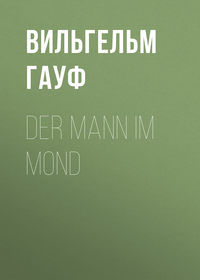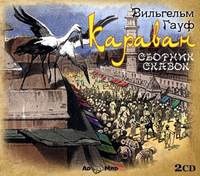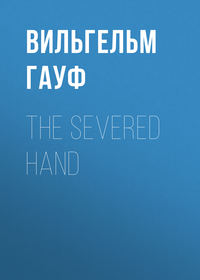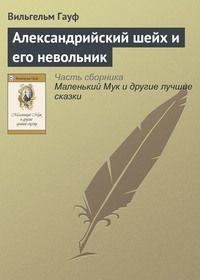 полная версия
полная версияThe Oriental Story Book: A Collection of Tales
“This night, at the hour thou knowest, bring the mantle to the Ponte Vecchio; four hundred zechins await thee!”
I stood as one thunder-struck: thus had I trifled with fortune, and entirely missed my aim. Nevertheless, I reflected not long; catching up the two hundred zechins, I bounded to the side of the young man and said, “Take your zechins again, my good friend, and leave me the cloak; I cannot possibly part with it.”
At first he treated the thing as a jest, but when he saw it was earnest, he fell in a passion at my presumption, and called me a fool; and thus at last we came to blows. I was fortunate enough to seize the mantle in the scuffle, and was already making off with it, when the young man called the police to his assistance, and had both of us carried before a court of justice. The magistrate was much astonished at the accusation, and adjudged the cloak to my opponent. I however, offered the young man twenty, fifty, eighty, at last a hundred, zechins, in addition to his two hundred, if he would surrender it to me. What my entreaties could not accomplish, my gold did. He took my good zechins, while I went off in triumph with the mantle, obliged to be satisfied with being taken for a madman by every one in Florence. Nevertheless, the opinion of the people was a matter of indifference to me, for I knew better than they, that I would still gain by the bargain.
With impatience I awaited the night; at the same hour as the preceding day, I proceeded to the Ponte Vecchio, the mantle under my arm. With the last stroke of the clock, came the figure out of darkness to my side: beyond a doubt it was the man of the night before.
“Hast thou the cloak?” I was asked.
“Yes, sir,” I replied, “but it cost me a hundred zechins cash.”
“I know it,” rejoined he; “look, here are four hundred.” He moved with me to the broad railing of the bridge and counted out the gold pieces; brightly they glimmered in the moonshine, their lustre delighted my heart—ah! it did not foresee that this was to be its last joy. I put the money in my pocket, and then wished to get a good view of the generous stranger, but he had a mask before his face, through which two dark eyes frightfully beamed upon me.
“I thank you, sir, for your kindness,” said I to him; “what further desire you of me? I told you before, however, that it must be nothing evil.”
“Unnecessary trouble,” answered he, throwing the cloak over his shoulders; “I needed your assistance as a physician, nevertheless not for a living, but for a dead person.”
“How can that be?” exclaimed I in amazement.
“I came with my sister from a distant land,” rejoined he, at the same time motioning me to follow him, “and took up my abode with a friend of our family. A sudden disease carried off my sister yesterday, and our relations wished to bury her this morning. According to an old usage of our family, however, all are to repose in the sepulchre of our fathers; many who have died in foreign lands, nevertheless sleep there embalmed. To my relations now I grant the body, but to my father must I bring at least the head of his daughter, that he may see it once again.”
In this custom of severing the head from near relatives there was to me, indeed, something awful; nevertheless, I ventured to say nothing against it, through fear of offending the Unknown. I told him, therefore, that I was well acquainted with the art of embalming the dead, and asked him to lead me to the body. Notwithstanding, I could not keep myself from inquiring why all this must be done so secretly in the night. He answered me that his relations, who considered his purpose inhuman, would prevent him from accomplishing it by day; but only let the head once be cut off, and they could say little more about it: he could, indeed, have brought the head to me, but a natural feeling prevented him from cutting it off himself.
These words brought us to a large splendid house; my companion pointed it out to me as the termination of our nocturnal walk. We passed the principal door, and entering a small gate, which the stranger carefully closed after him, ascended, in the dark, a narrow, winding staircase. This brought us to a dimly-lighted corridor, from which we entered an apartment; a lamp, suspended from the ceiling, shed its brilliant rays around.
In this chamber stood a bed, on which lay the corpse; the Unknown turned away his face, as if wishing to conceal his tears. He beckoned me to the bed, and bidding me set about my business speedily yet carefully, went out by the door.
I seized my knives, which, as a physician, I constantly carried with me, and approached the bed. Only the head of the corpse was visible, but that was so beautiful that the deepest compassion involuntarily came over me. In long braids the dark hair hung down; the face was pale, the eyes closed. At first, I made an incision in the skin, according to the practice of surgeons when they remove a limb. Then I took my sharpest knife and cut entirely through the throat. But, horror! the dead opened her eyes—shut them again—and in a deep sigh seemed now, for the first time, to breathe forth her life! Straightway a stream of hot blood sprang forth from the wound. I was convinced that I had killed the poor girl; for that she was dead there could be no doubt—from such a wound there was no chance of recovering. I stood some moments in anxious wo, thinking on what had happened. Had the Red-mantle deceived me, or was his sister, perhaps, only apparently dead? The latter appeared to me more probable. Yet I dared not tell the brother of the deceased, that, perhaps, a less rash blow would have aroused, without having killed her; therefore I began to sever the head entirely—but once again the dying one groaned, stretched herself out in a convulsion of pain, and breathed her last. Then terror overpowered me, and I rushed shivering out of the apartment.
But outside in the corridor it was dark, for the lamp had died out; no trace of my companion was perceptible, and I was obliged to move along by the wall, at hazard in the dark, in order to reach the winding-stairs. I found them at last, and descended, half falling, half gliding. There was no one below; the door was only latched, and I breathed more freely when I was in the street, out of the uneasy atmosphere of the house. Spurred on by fear, I ran to my dwelling, and buried myself in the pillow of my bed, in order to forget the horrid crime I had committed. But sleep fled my eyelids, and soon morning admonished me again to collect myself. It seemed probable to me, that the man who had led me to this villainous deed, as it now appeared to me, would not denounce me. I immediately resolved to attend to my business in my shop, and to put on as careless an air as possible. But, alas! a new misfortune, which I now for the first time observed, augmented my sorrow. My cap and girdle, as also my knives, were missing; and I knew not whether they had been left in the chamber of the dead, or lost during my flight. Alas! the former seemed more probable, and they could discover in me the murderer.
I opened my shop at the usual time; a neighbor stepped in, as was his custom, being a communicative man. “Ah! what say you to the horrid deed,” he cried, “that was committed last night?” I started as if I knew nothing. “How! know you not that with which the whole city is filled? Know you not that last night, the fairest flower in Florence, Bianca, the daughter of the Governor, was murdered? Ah! only yesterday I saw her walking happily through the streets with her bridegroom, for to-day she would have had her nuptial festival!”
Every word of my neighbor was a dagger to my heart; and how often returned my torments! for each of my customers told me the story, one more frightfully than another; yet not one could tell it half so horribly as it had seemed to me. About mid-day, an officer of justice unexpectedly walked into my shop, and asked me to clear it of the bystanders.
“Signor Zaleukos,” said he, showing me the articles I had lost, “belong these things to you?” I reflected whether I should not entirely disown them; but when I saw through the half-opened door, my landlord and several acquaintances, who could readily testify against me, I determined not to make the matter worse by a falsehood, and acknowledged the articles exhibited as my own. The officer told me to follow him, and conducted me to a spacious building, which I soon recognised as the prison. Then, a little farther on, he showed me into an apartment.
My situation was terrible, as I reflected on it in my solitude. The thought of having committed a murder, even against my wish, returned again and again. Moreover, I could not conceal from myself that the glance of the gold had dazzled my senses; otherwise I would not have fallen so blindly into the snare.
Two hours after my arrest, I was led from my chamber, and after descending several flights of stairs, entered a spacious saloon. Around a long table hung with black, were seated twelve men, mostly gray with age. Along the side of the room, benches were arranged, on which were seated the first people of Florence. In the gallery, which was built quite high, stood the spectators, closely crowded together. As soon as I reached the black table, a man with a gloomy, sorrowful air arose—it was the Governor. He told the audience that, as a father, he could not judge impartially in this matter, and that he, for this occasion, would surrender his seat to the oldest of the senators. The latter was a gray-headed man, of at least ninety years. He arose, stooping beneath the weight of age; his temples were covered with thin white hair, but his eyes still burned brightly, and his voice was strong and steady. He began by asking me whether I confessed the murder. I entreated his attention, and with dauntless, distinct voice, related what I had done and all that I knew. I observed that the Governor during my recital turned first pale, then red, and when I concluded, became furious. “How, wretch!” he cried out to me, “wishest thou thus to lay upon another, the crime thy avarice has committed?”
The Senator rebuked him for his interruption, after having of his own free will resigned his right; moreover, that it was not so clear, that I had done the deed through avarice, for according to his own testimony, nothing had been taken from the corpse. Yes, he went still further; he told the Governor that he must give an account of his daughter’s early life, for in this way only could one conclude whether I had told the truth or not. Immediately he closed the court for that day, for the purpose, as he said, of consulting the papers of the deceased, which the Governor was to give him. I was carried back to my prison, where I passed a sorrowful day, constantly occupied with the ardent hope, that they would in some way discover the connection between the deceased and the Red-mantle.
Full of hope, I proceeded the next day to the justice-hall. Several letters lay upon the table; the old Senator asked whether they were of my writing. I looked at them, and found that they were by the same hand as both the letters that I had received. This I disclosed to the Senator; but he seemed to give but little weight to it, answering that I must have written both, for the name subscribed was unquestionably a Z, the initial of my name. The letters, however, contained menaces against the deceased, and warnings against the marriage which she was on the point of consummating. The Governor seemed to have imparted something strange and untrue, with respect to my person; for I was treated this day with more suspicion and severity. For my justification, I appealed to the papers, which would be found in my room, but I was informed that search had been made and nothing found. Thus, at the close of the court, vanished all my hope; and when, on the third day, I was led again to the hall, the judgment was read aloud, that I was convicted of a premeditated murder, and sentenced to death. To such extremity had I come; forsaken by all that was dear to me on earth, far from my native land, innocent and in the bloom of my years, I was to die by the axe!
On the evening of this terrible day which had decided my fate, I was seated in my lonely dungeon, my hopes past, my thoughts seriously turned upon death, when the door of my prison opened, and a man entered who regarded me long in silence.
“Do I see you again, in this situation, Zaleukos?” he began. By the dim light of my lamp I had not recognised him, but the sound of his voice awoke within me old recollections. It was Valetty, one of the few friends I had made during my studies at Paris. He said that he had casually come to Florence, where his father, a distinguished man, resided; he had heard of my story, and come to see me once more, to inquire with his own lips, how I could have been guilty of such an awful crime. I told him the whole history: he seemed lost in wonder, and conjured me to tell him, my only friend, all the truth, and not to depart with a lie upon my tongue. I swore to him with the most solemn oath, that I had spoken the truth; and that no other guilt could be attached to me, than that, having been blinded by the glance of the gold, I had not seen the improbability of the Stranger’s story. “Then did you not know Bianca?” asked he. I assured him that I had never seen her. Valetty thereupon told me that there was a deep mystery in the matter; that the Governor in great haste had urged my condemnation, and that a report was current among the people, that I had known Bianca for a long time, and had murdered her out of revenge for her intended marriage with another. I informed him that all this was probably true of the Red-mantle, but that I could not prove his participation in the deed. Valetty embraced me, weeping, and promised me to do all that he could; to save my life, if nothing more. I had not much hope; nevertheless, I knew that my friend was a wise man, and well acquainted with the laws, and that he would do all in his power to preserve me.
Two long days was I in suspense; at length Valetty appeared. “I bring consolation, though even that is attended with sorrow. You shall live and be free, but with the loss of a hand!”
Overjoyed, I thanked my friend for my life. He told me that the Governor had been inexorable, and would not once look into the matter: that at length, however, rather than appear unjust, he had agreed, if a similar case could be found in the annals of Florentine history, that my penalty should be regulated by the punishment that was then inflicted. He and his father had searched, day and night, in the old books, and had at length found a case similar in every respect to mine; the sentence there ran thus:—
“He shall have his left hand cut off; his goods shall be confiscated, and he himself banished forever!”
Such now was my sentence, also, and I was to prepare for the painful hour that awaited me. I will not bring before your eyes the frightful moment, in which, at the open market-place, I laid my hand upon the block; in which my own blood in thick streams flowed over me!
Valetty took me to his house until I had recovered, and then generously supplied me with money for my journey, for all that I had so laboriously acquired was confiscated to Justice. I went from Florence to Sicily, and thence, by the first ship I could find, to Constantinople. My hopes, which rested on the sum of money I had left with my friend, were not disappointed. I proposed that I should live with him—how astonished was I, when he asked why I occupied not my own house! He told me that a strange man had, in my name, bought a house in the quarter of the Greeks, and told the neighbors that I would soon, myself, return. I immediately proceeded to it with my friend, and was joyfully received by all my old acquaintances. An aged merchant handed me a letter which the man who purchased for me had left. I read:—
“Zaleukos! two hands stand ready to work unceasingly, that thou mayest not feel the loss of one. That house which thou seest and all therein are thine, and every year shalt thou receive so much, that thou shalt be among the rich of thy nation. Mayest thou forgive one who is more unhappy than thyself!”
I could guess who was the writer, and the merchant told me, in answer to my inquiry that it was a man covered with a red cloak, whom he had taken for a Frenchman. I knew enough to convince me that the Unknown was not entirely devoid of generous feeling. In my new house I found all arranged in the best style; a shop, moreover, full of wares, finer than any I had ever had. Ten years have elapsed since then; more in compliance with ancient custom, than because it is necessary, do I continue to travel in foreign lands for purposes of trade, but the land which was so fatal to me I have never seen since. Every year I receive a thousand pieces of gold; but although it rejoices me to know that this Unfortunate is so noble, still can his money never remove wo from my soul, for there lives forever the heart-rending image of the murdered Bianca!
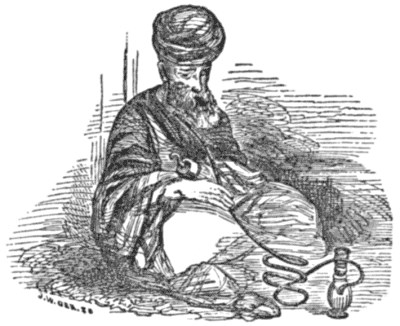
Thus ended the story of Zaleukos, the Grecian merchant. With great interest had the others listened; the stranger, in particular, seemed to be wrapt up in it: more than once he had drawn a deep sigh, and Muley looked as if he had had tears in his eyes. No one spoke for some time after the recital.
“And hate you not the Unknown, who so basely cost you a noble member of your body, and even put your life in danger?” inquired Selim.
“Perhaps there were hours at first,” answered the Greek, “in which my heart accused him before God, of having brought this misfortune upon me, and embittered my life; but I found consolation in the religion of my fathers, which commanded me to love my enemies. Moreover, he probably is more unhappy than myself.”
“You are a noble man!” exclaimed Selim, cordially pressing the hand of the Greek.
The leader of the escort, however, here interrupted their conversation. He came with a troubled air into the tent, and told them that they could not give themselves up to repose, for this was the place in which Caravans were usually attacked, and his guards imagined they had seen several horsemen in the distance.
The merchants were confounded at this intelligence. Selim, the stranger, however, expressed wonder at their alarm, saying they were so well escorted they need not fear a troop of Arabian robbers.
“Yes, sir,” rejoined to him the leader of the guard; “were he only a common outlaw, we could compose ourselves to rest without anxiety; but for some time back, the frightful Orbasan has shown himself again, and it is well to be upon our guard.”
The stranger inquired who this Orbasan was, and Achmet, the old merchant, answered him:—
“Various rumors are current among the people with respect to this wonderful man. Some hold him to be a supernatural being, because, with only five or six men, he has frequently fallen upon a whole encampment; others regard him as a bold Frenchman, whom misfortune has driven into this region: out of all this, however, thus much alone is certain, that he is an abandoned robber and highwayman.”
“That can you not prove,” answered Lezah, one of the merchants. “Robber as he is, he is still a noble man, and such has he shown himself to my brother, as I can relate to you. He has formed his whole band of well-disciplined men, and as long as he marches through the desert, no other band ventures to show itself. Moreover, he robs not as others, but only exacts a tribute from the caravans; whoever willingly pays this, proceeds without further danger, for Orbasan is lord of the wilderness!”
Thus did the travellers converse together in the tent; the guards, however, who were stationed around the resting-place, began to become uneasy. A tolerably large band of armed horsemen showed themselves at the distance of half a league. They appeared to be riding straight to the encampment; one of the guard came into the tent, to inform them that they would probably be attacked.
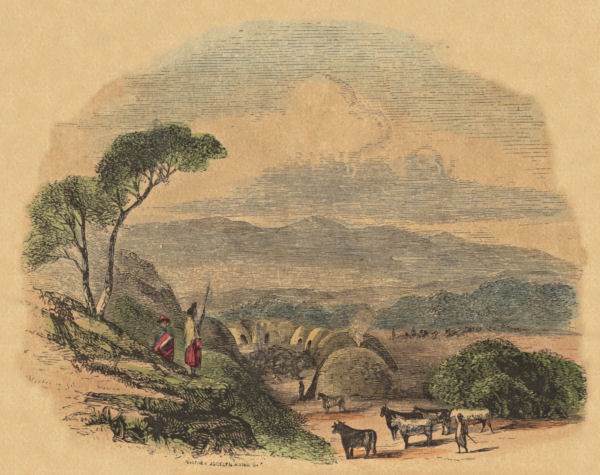
The merchants consulted among themselves as to what they should do, whether to march against them, or await the attack. Achmet and the two elder merchants inclined to the latter course; the fiery Muley, however, and Zaleukos desired the former, and summoned the stranger to their assistance. He, however, quietly drew forth from his girdle a little blue cloth spangled with red stars, bound it upon a lance, and commanded one of the slaves to plant it in front of the tent: he would venture his life upon it, he said, that the horsemen, when they saw this signal, would quietly march back again. Muley trusted not the result; still the slave put out the lance in front of the tent. Meanwhile all in the camp had seized their weapons, and were looking upon the horsemen in eager expectation. The latter, however, appeared to have espied the signal; they suddenly swerved from their direct course towards the encampment, and, in a large circle, moved off to the side.
Struck with wonder, the travellers stood some moments, gazing alternately at the horsemen and the stranger. The latter stood in front of the tent quite indifferently, as though nothing had happened, looking upon the plain before him. At last Muley broke the silence.
“Who art thou, mighty stranger,” he exclaimed, “that restrainest with a glance the wild hordes of the desert?”
“You rate my art higher than it deserves,” answered Selim Baruch. “I observed this signal when I fled from captivity; what it means, I know not—only this much I know, that whoever travels with this sign, is under great protection.”
The merchants thanked the stranger, and called him their preserver; indeed, the number of the robbers was so great, that the Caravan could not, probably, for any length of time, have offered an effectual resistance.
With lighter hearts they now gave themselves to sleep; and when the sun began to sink, and the evening wind to pass over the sand-plain, they struck their tents, and marched on. The next day they halted safely, only one day’s journey from the entrance of the desert. When the travellers had once more collected in the large tent, Lezah, the merchant, took up the discourse.
“I told you, yesterday, that the dreaded Orbasan was a noble man; permit me to prove it to you, to-day, by the relation of my brother’s adventure. My father was Cadi of Acara. He had three children; I was the eldest, my brother and sister being much younger than myself. When I was twenty years old, a brother of my father took me under his protection; he made me heir to his property, on condition that I should remain with him until his death. He however had reached an old age, so that before two years I returned to my native land, having known nothing, before, of the misfortune which had meanwhile fallen upon my family, and how Allah had turned it to advantage.”
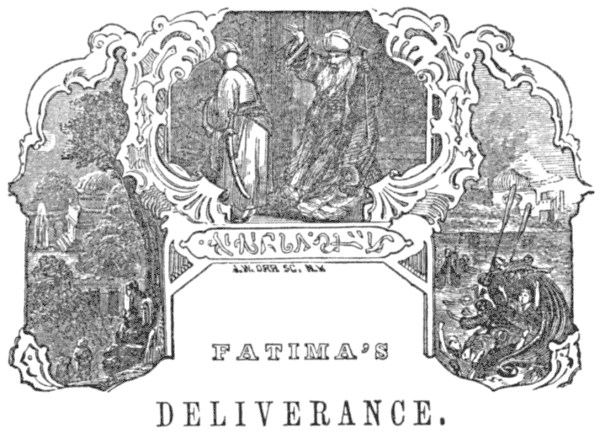
MY brother Mustapha and my sister Fatima were almost of the same age; the former was at most but two years older. They loved each other fervently, and did in concert, all that could lighten, for our suffering father, the burden of his old age. On Fatima’s seventeenth birthday, my brother prepared a festival. He invited all her companions, and set before them a choice banquet in the gardens of our father, and, towards evening, proposed to them to take a little sail upon the sea, in a boat which he had hired, and adorned in grand style. Fatima and her companions agreed with joy, for the evening was fine, and the city, particularly when viewed by evening from the sea, promised a magnificent prospect. The girls, however, were so well pleased upon the bark, that they continually entreated my brother to go farther out upon the sea. Mustapha, however, yielded reluctantly, because a Corsair had been seen, for several days back, in that vicinity.
Not far from the city, a promontory projected into the sea; thither the maidens were anxious to go, in order to see the sun sink into the water. Having rowed thither, they beheld a boat occupied by armed men. Anticipating no good, my brother commanded the oarsmen to turn the vessel, and make for land. His apprehensions seemed, indeed, to be confirmed, for the boat quickly approached that of my brother, and getting ahead of it, (for it had more rowers,) ran between it and the land. The young girls, moreover, when they knew the danger to which they were exposed, sprang up with cries and lamentations: in vain Mustapha sought to quiet them, in vain enjoined upon them to be still, lest their running to and fro should upset the vessel. It was of no avail; and when, in consequence of the proximity of the other boat, all ran upon the further side, it was upset.



